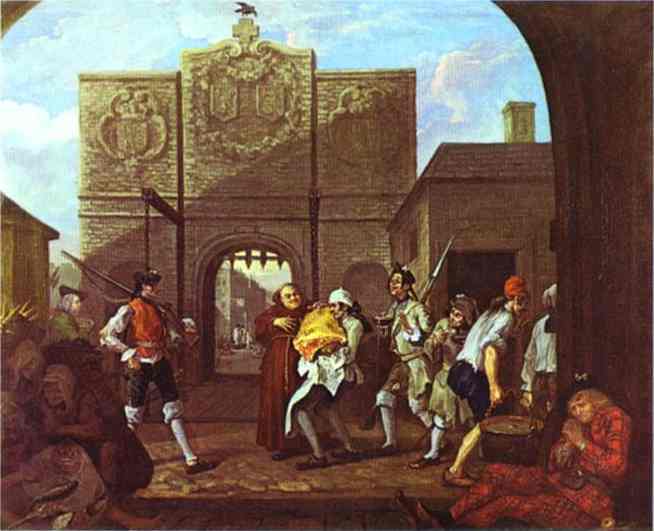
English 364
Restoration and 18th-Century British Literature
Fall 2007
Stephen C. Behrendt
319 Andrews; 472-1806
Office: 1030-1130 MWF
Texts:
Required: The Broadview Anthology of British Literature, Volume Three: The Restoration and Eighteenth Century
Henry Fielding, Joseph Andrews
Optional: Linda Colley, Britons: Forging the Nation 1707-1837
Matthew Craske, Art in Europe, 1700-1830
Course Objectives:
This century (and a half) began with the restoration of the monarchy under Charles II (1660) and produced three revolutions, each of which irreversibly changed the world. We will look at the end of the old world and the birth of the new through the multiple lenses of literature, visual art, music and contemporary culture. While our approach will be historical, the course does not expect you to be a specialist. We will work at the material as a group, reading, looking, and listening to explore the interrelated workings of various social, political, economic, scientific, intellectual, and artistic forces in British culture at various points in the century, and we will try to make sense of how things change, and why. During the 18th century, literature and the arts “went public” as authors and artists appealed to a broad public audience, and the works that resulted were often as entertaining as they were serious. We will sample these materials to get a taste of the culture that gave rise to what we think of as “the modern world.”
Teaching Method:
Discussion. I will do some brief mini-lectures to provide background, but most of our work will involve classroom conversations in which we will offer and compare our impressions and ideas in a non-intimidating environment. Everyone who contributes regularly, actively, and meaningfully to our discussions will receive additional grade points, up to a maximum of a full letter grade.
Requirements:
Class discussion (quizzes only if necessary to produce discussion).
Daily submission of index cards.
Two working papers (brief, directed essays).
Final examination.
A course evaluation is required at semester’s end.
Basis for course grade:
two working papers — 30% each = 60%
final examination — 30% = 30%
daily index cards — 10% = 10%
100%
Questions, problems, complaints, etc.:
I am often in or near my office when I am not in class, and I will keep my regular office hours unless an emergency arises, in which case I will leave a note. You can also make appointments to confer at mutually convenient times. My door is just about always open to you; if questions, problems, or complaints arise, please see me as soon as possible.